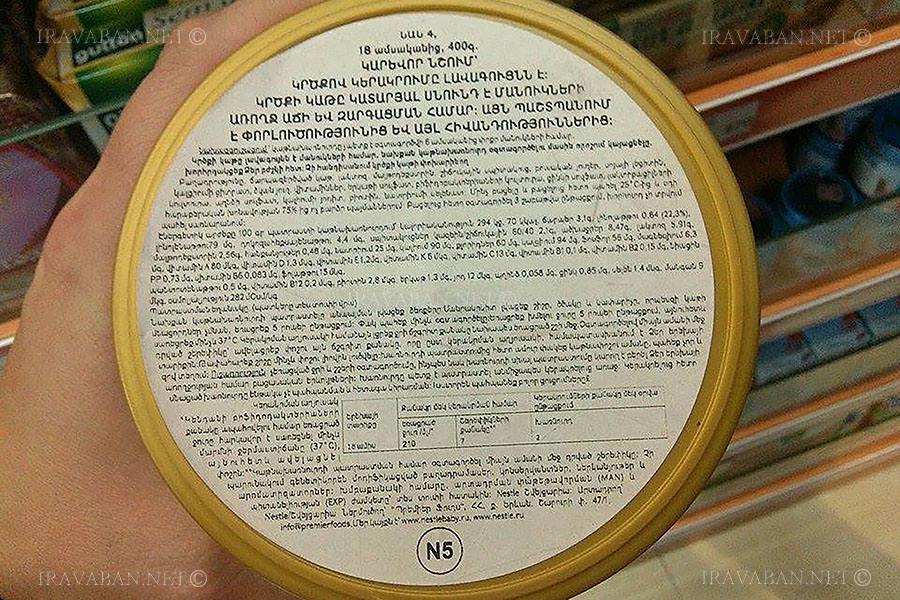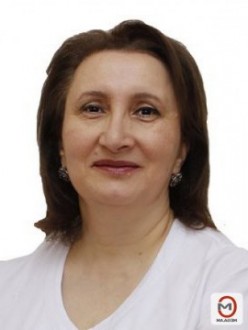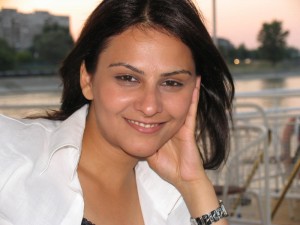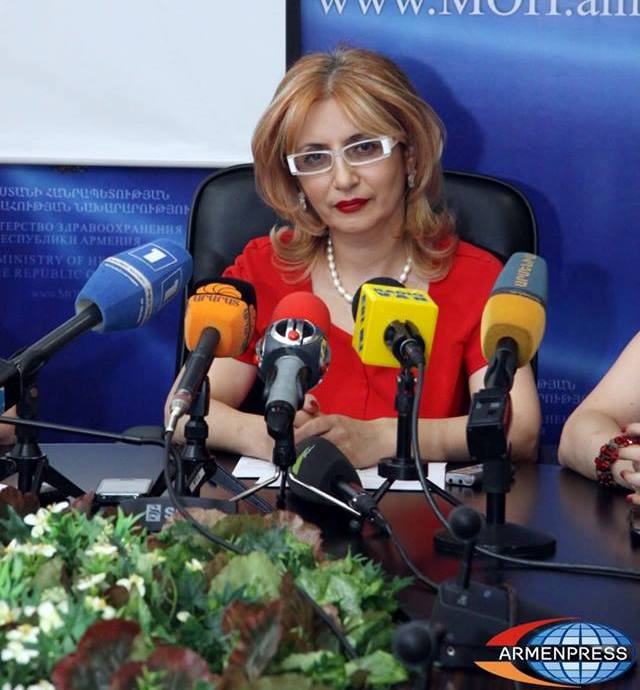“Every child has the right to be fed by breast milk as an optimal and irreplaceable measure to receive a safe and appropriate nourishment”: this provision is prescribes by Point 1 of Article 9 of the Law on “Breastfeeding Promotion and Regulation of Infant Food Marketing” that has taken effect in March of this year. Sometimes, however, this right that has already been prescribed by law is violated by the health workers themselves.
29-year-old Karine Hunanyan remembers all the inhuman efforts that she has made for her child to be fed by breast milk. “I’ve had a baby through a cesarean section. On taking the baby to the rehabilitation department they told us to bring milk formula. At that time I didn’t understand a lot of things, I thought it would not impede the breastfeeding,” however after getting used to bottle milk the child started to resist the breast milk.
Ofelya, who is a mother of two children, has fed her first baby with breast feed only one month. “When at the maternity hospital my baby was brought to me, I was told that it had already been fed 30 grams. Then the doctor came, put the baby on my breast for a minute and then said that they would give the baby the milk if I didn’t have it at that time but told me to put the child on my breast periodically:” according to her there was no shortage of milk. Ofelya has fed her second child solely with breast milk up to six months old.
“Feeding a baby with milk formula once or twice may cause the situation that it is impossible to breastfeed the baby. And naturally the child will continue to eat the formula milk of the brand that has been given at the maternity hospital,” the pediatrician, President of the “Trust” Health Care NGO Susanna Harutyunyan noted that the issue of feeding infants with milk formula at maternity hospitals continues to be urgent.
According to her the dependence on formula milk costs a lot both for the baby and for its family. In order to feed the child up to one year old with formula milk the family will spend an average of 1 million AMD.
On the other hand, the scientists have proved that only the breast milk contains all the necessary nourishments that protect the child from different diseases. “In Armenia, breastfeeding can save the lives of at least 60 children annually:” this statement is mentioned in the manual on “The feeding patterns of a breastfed child” confirmed by Order 544-A of the Minister of Healthcare.
Nune Pashinyan, the Head of the Child Health Care Department of the Ministry of Healthcare, recalls the official statistics. In 1990 the index of the breastfeeding made up 57 percent, later in 1990-1994 it drastically decreased making up 20 percent in 1994.
During the next years, due to the implementation of “The Project of the Promotion of Breastfeeding” this index has quadrupled as 68.7 percent of the newborns are solely fed on breastmilk till they become six months old, and 84.4 percent of the newborns are mainly fed with breast milk (they also receive other nourishment). Meanwhile, in 1994 the mortality rate of the children at the age of 0-1 was 14.2%, but in 2014 it became 8.7%, that is the infant mortality rate has reduced almost twice.
The experts also note that the right nourishment during the first 1000 days of the child’s life is very important for the health of a child. We learn from the website nutrition.am that almost 7 million children die in the world annually before they become 5 years old; moreover malnutrition is the reason of the 35% of the deaths. It is also one of the reasons of disabilities and do not allow children to reach the full potential of their development. 2/3 percent of the death of the children under 5 occurs during the first year of their lives.
The health workers must promote breastfeeding and not provide any kind of food or drink but the breast milk. This is prescribed by Article 19 of the Law on “Breastfeeding Promotion and Regulation of Infant Food Marketing.”
To state that the health workers give milk formula to the infants as they cooperate with a company importing that product is not possible, and it is also not possible to exclude it.
The member of the initiative “The Room for Breastfeeding” Kristine Barseghyan mentioned in the interview with us that during more than one year of experience she has heard of such cases but she cannot say anything certain about their reasons. One of the possible reasons is the insufficient knowledge of the health workers. She voices the issue that consultant-specialists on breastfeeding do not work at the appropriate institutions of the protection of maternal and child health sphere. Notably, the rest of our interlocutors expressed the same opinion. And Nune Pashayan noted that measures are being taken in connection with this issue, namely some part of the health workers of different regions have undergone trainings and they will continue.
And S. Harutyunyan mentions that this is a type of violation that is not discovered easily.
In response to the question of Iravaban.net in connection with the influence of the new law Nune Pashayan stated that it is early to give any evaluations. “But the fact that our health workers already become aware of the issue, make appropriate conclusions and review their future actions is evident. But it is also certain that we have a lot of work to do.”:
Free consultation, trainings, and conferences
If the violations in relation to the feeding with milk formula are latent in the maternity hospitals, there are such violations that immediately strike the eye.
“Natali Pharm” Company, which imports baby food of the “HIPP” brand informs of providing free and constant advice by a pediatrician in its Facebook and internet pages. We also learn from the webpage that the company organizes seminars on child care and nutrition issues.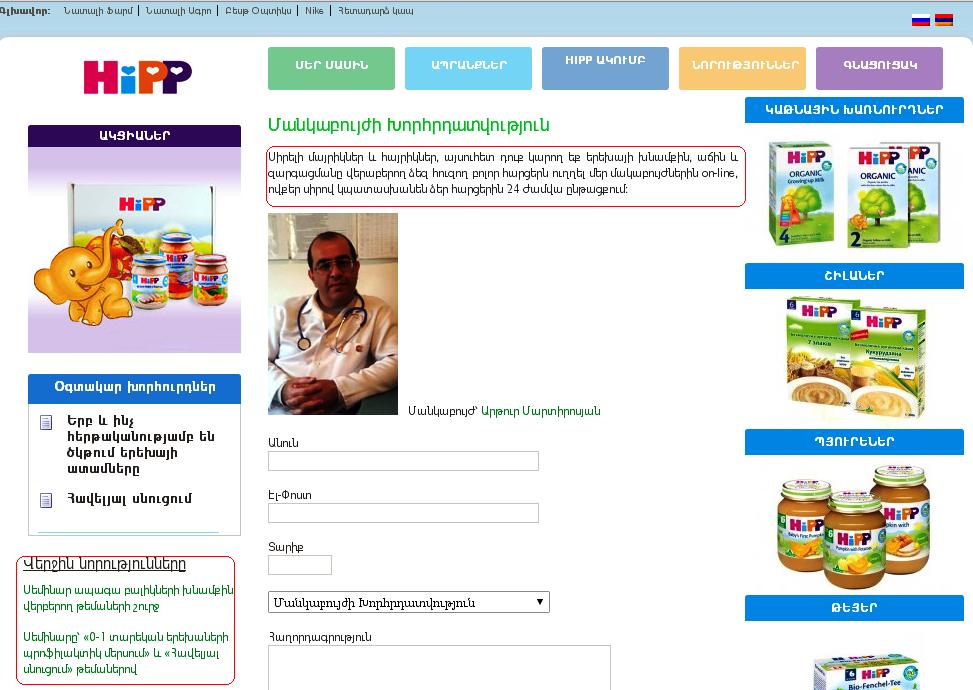
Whereas, according to Part 1 of Article 12 of the Law on “Breastfeeding Promotion and Regulation of Infant Food Marketing,” advertisements and other influencing forms of milk formula for newborns and other than milk formula for the children under twelve months are forbidden.
Part 1 (point 1) of Article 14 of the same law forbids the health care workers to be engaged in the advertisements or in other forms of promotion of baby food and connected products.
In fact, based on the report of iravaban.net, the State Health Inspectorate of the Ministry of Health initiated administrative proceedings in order to find whether the content of the website corresponds to the requirements prescribed by law.
Another example: On 8 October the “Kidsco” Company that imports milk formula, organized a conference on the issues of the health of mothers and children. During the interview with us Nune Pashayan confirmed that the Company invited the best experts from Russia for the conference. ն։
“As for the “Kidsco”, they have applied to the ministry and the latter prohibited them to present any pen or notebook with their logo on them, a condition was put forward that the topics only refer to breastfeeding, and our expert have presented our law there,” N. Pashinyan said.
The experts state that teaching the medical staff is the function of the state. “When that function is carried out by a company importing milk formula, we have a conflict of interests. If they have no interest, why should they spend money to organize trainings for the medical staff? Why should they try to enter into contact with mothers?” Susanna Harutyunyan said.
An important note: Breastfeeding is the best option
Till recently in the big supermarkets the labels of infant food bore notes giving the features of breast milk to that product. Namely, it mentioned that they contained nucleotides, prebiotics that strengthen child immune system, regulate digestion, etc. Such notes are prohibited according to Article 16 of the law on “Breastfeeding Promotion and Regulation of Infant Food Marketing.”
However, our recent studies showed that the labels of the milk formula sold at the supermarkets have been changed. The following writ is found at the beginning of the note: “Important note. Breastfeeding is the best option. Brest milk is the perfect food for the healthy development of the infants. It prevents from diarrhea and other diseases.”
However, we cannot state the same for online shops. Namely, the products presented in such online shops as sas.am, babybuy.am, 5plus.am, bear notes that make the milk formula equivalent to breast milk.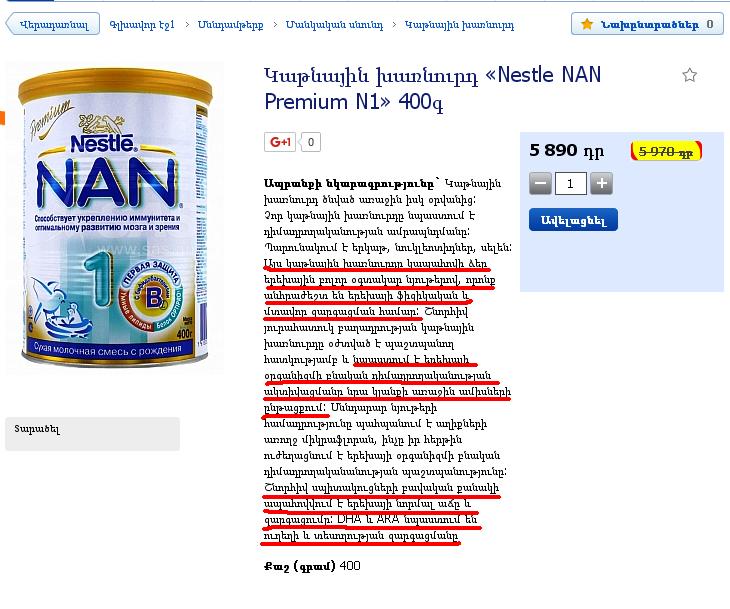
Notably, Susanna Harutyunyan claims that it is not proved scientifically that the presence of such nucleotides, prebiotics really contribute to the development of child brain and the strengthening of the immune system. “All these features are proved only in the case of breast milk. If there appear some scientific evidence showing that adding this or that ingredient is important for the infant health, it will become obligatory for all the companies producing milk formula.”
How much baby food is imported and who are the importers?
According to data provided to iravaban.net by the Ministry of Finance, the following companies import baby food: “Natali Pharm”, “Euro Trade”, “Premiere Foods”, “Kidsco”, “Baby Sim”, “TonusLes” LLCs, “Catherine Group”, “Slav Group” CJSCs, “Vahan Harutyunyan” PE, the Armenian branch of “Armenian Missionary Association of America”.
In 2013, Armenia imported baby food amounting to 462.1 tons that made up 1 billion 690.4 million AMD, in 2014 the amount was 447.8 tons which totaled to 2 billion 27.1 million AMD.
From January to September of 2015 baby food amounting to 197.2 tons which make up 882 million AMD has been imported. And if the same frequency and amount is kept in the coming three months, it can be stated that baby food amounting to about 265 tons might have been imported till the end of the year. And by comparing the data we can state that the amount of imported baby food is decreasing.
In fact, the experts state that both the Armenian law and the international law on “International Code of Marketing of Breastmilk Substitutes” (the law was adopted in 1981 by the International Healthcare Organization and UNICEF, and which has also been ratified by Armenia) do not forbid to sell milk formula. They are to be sold as they are needed (for example, if a woman having AIDS feeds her child, the virus might be transferred to the child as well). But it is forbidden to affect the objective decision of a woman in order to increase the amount of selling.
Motherhood Protection
During the interview with iravaban.net Advocate Zaruhi Hayrapetyan states that together with the adoption of the law on “Breastfeeding Promotion and Regulation of Infant Food Marketing,” some amendments have been made in the Labor Code and the Code on “Administrative Offences”.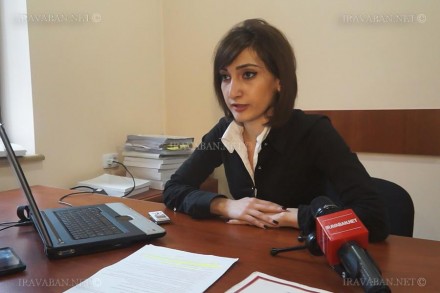
Namely Article 47.8 of the Code on “Administrative Offences” stipulates administrative liability totaling to 100-500 fold of the minimum wage in case of committing the prohibited act. And the amount of fine will duplicate if the offence is committed again in a year.
And according to Article 251 of the Labor Code, rooms with appropriate furnishing shall be provided for the infant breastfeeding in the workplace. In fact, Article 258 of the same Labor Code has operated for a long time, and its Point 3 stipulates that “Apart from general break for rest and meal, a breast-feeding woman shall be given an additional break of at least 30 minutes once every three hours to feed the child until the child is a year and half. In the period of breaks designed for feeding the child, the employee shall be paid in the amount of the average hourly salary.”
In reply to the question whether it is practical that a woman is able to feed the baby at her workplace, and whether it is possible that the employers will allocate the appropriate rooms, and taking into consideration the fact that very often the provisions of a law stay on the paper, Kristine Barseghyan, a member of the initiative “Breastfeeding Room”, said the following during the interview with iravaban.net:
“I do not want to state for sure, but I think no one will do it, as it is prescribed by law, as it is in many other cases. But the issue will be solved for many mothers if they try to realize their right. Maybe they will not furnish special rooms, as it is not that easy, but they will allocate a room. I think that mothers should take some measures. Yes, if you demand, the employer is obliged to do it, excuse me, not to send to a toilet; it is a matter of approach.”
Astghik Karapetyan


